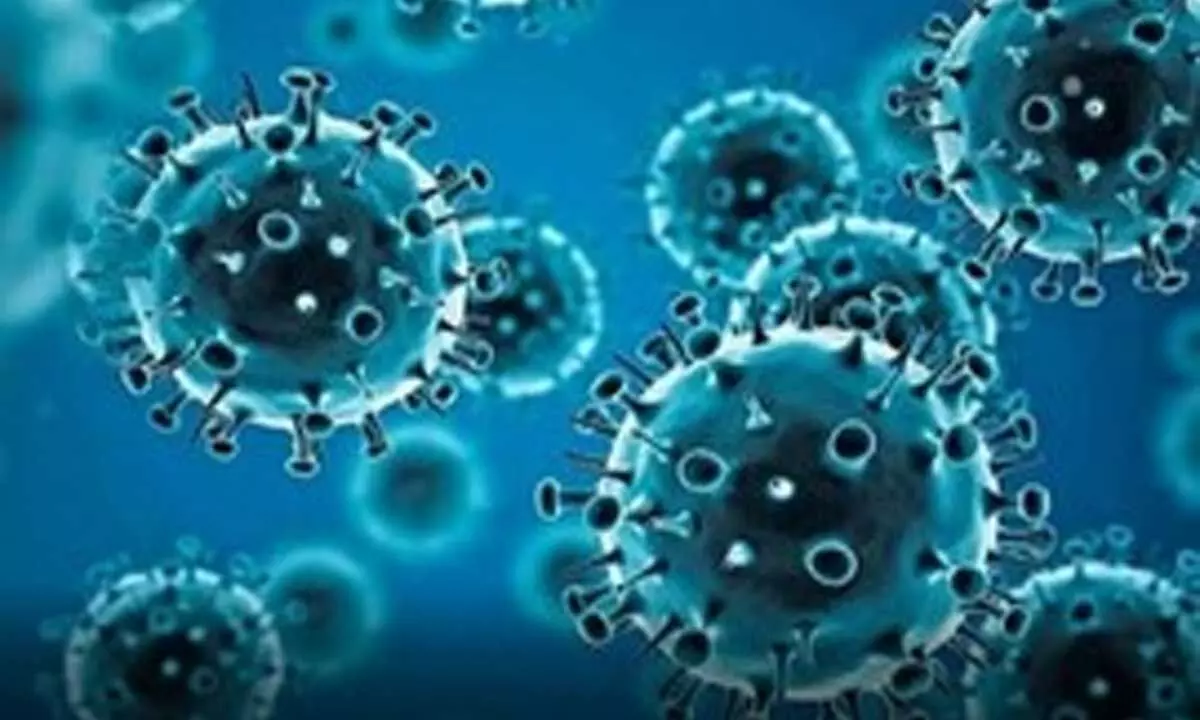Covid BA.2.86 appears less transmissible than XBB & EG variants: Experts
Share :

Newly detected BA.2.86 Covid sub-variant may be less transmissible than XBB and EG strains, which had earlier sparked significant infections across the globe, experts contended on Sunday.
New Delhi: Newly detected BA.2.86 Covid sub-variant may be less transmissible than XBB and EG strains, which had earlier sparked significant infections across the globe, experts contended on Sunday.
A.2.86, which descended from an Omicron variant, has so far been linked with 29 cases of Covid across four continents. The variant has been detected from both human and wastewater specimens.
New experimental data by Chinese scientists, not yet published or peer-reviewed, showed that BA.2.86 is so different from previous versions of the virus that it easily escapes antibodies produced in response to earlier infections -- even more than EG.5 does.
“BA.2.86 is antigenically distinct compared to XBB.1.5. It can significantly escape XBB-infection/vaccination induced antibodies, however, the infectivity of BA.2.86 may be much lower than XBB.1.5 and EG.5,” Yunlong Richard Cao, Assistant Professor at Peking University wrote on X (formerly Twitter).
“One possible scenario is BA.2.86 is less transmissible than current variants, and so never spreads widely,” evolutionary biologist Dr. Jesse Blooman, from the Fred Hutch Cancer Centre in the US was quoted as saying to The New York Times. “However, there is also a chance that the variant will spread widely — and we will just have to wait for more data to know.”
The data suggest that the updated vaccine will also be less effective against it.
However, the US Centers for Disease Control and Prevention (CDC) in its August 23 risk assessment, stated that based on currently available data, updated Covid-19 vaccines targeting the XBB.1.5 variant are expected to be effective against BA.2.86, for reducing severe disease and hospitalisation.
The BA.2.86 variant has more than 35 genetic differences from XBB.1.5, the dominant variant through most of this year. This genetic leap “is roughly of the same magnitude” as seen between the initial Omicron variant and the Delta variant, the CDC said.
“Such a high number of mutations is notable,” said infectious disease specialist Dr Scott Roberts in a recent bulletin in Yale Medicine.
“When we went from [Omicron variant] XBB.1.5 to [Eris] EG.5, that was maybe one or two mutations. But these massive shifts, which we also saw from Delta to Omicron, are worrisome,” he added.
Meanwhile, the CDC also noted that compared with other recent circulating SARS-CoV-2 variants, BA.2.86 may be more capable of causing breakthrough infections in people who were previously infected or vaccinated.
So far, it has not been found to cause more severe illness. But the limited number of cases means it’s too soon to know whether it causes more severe Covid-19 or is more transmissible than other variants, the CDC said.
But, “Overall, it doesn't appear to be nearly as extreme a situation as the original emergence of Omicron,” Ben Murrell, a researcher at Karolinska Institutet in Sweden, wrote on X.
“It isn't yet clear whether BA.2.86 (or its offspring) will outcompete the currently-circulating variants, and I don't think there is yet any data about its severity, but our antibodies do not appear to be completely powerless against it,” Murrell added, while also urging the need for ongoing genomic surveillance.













